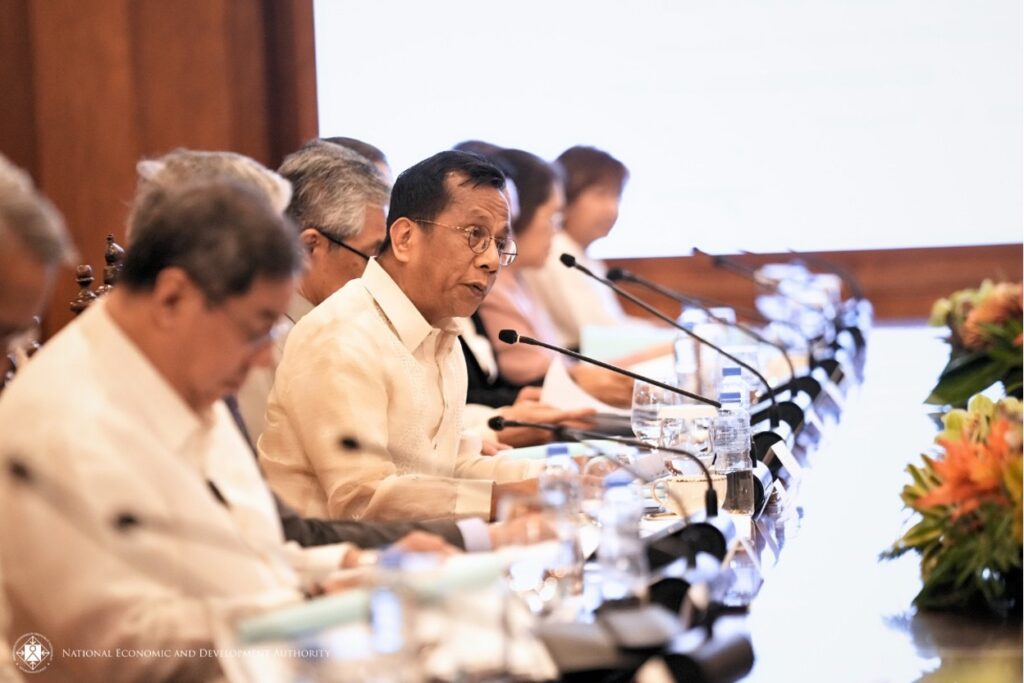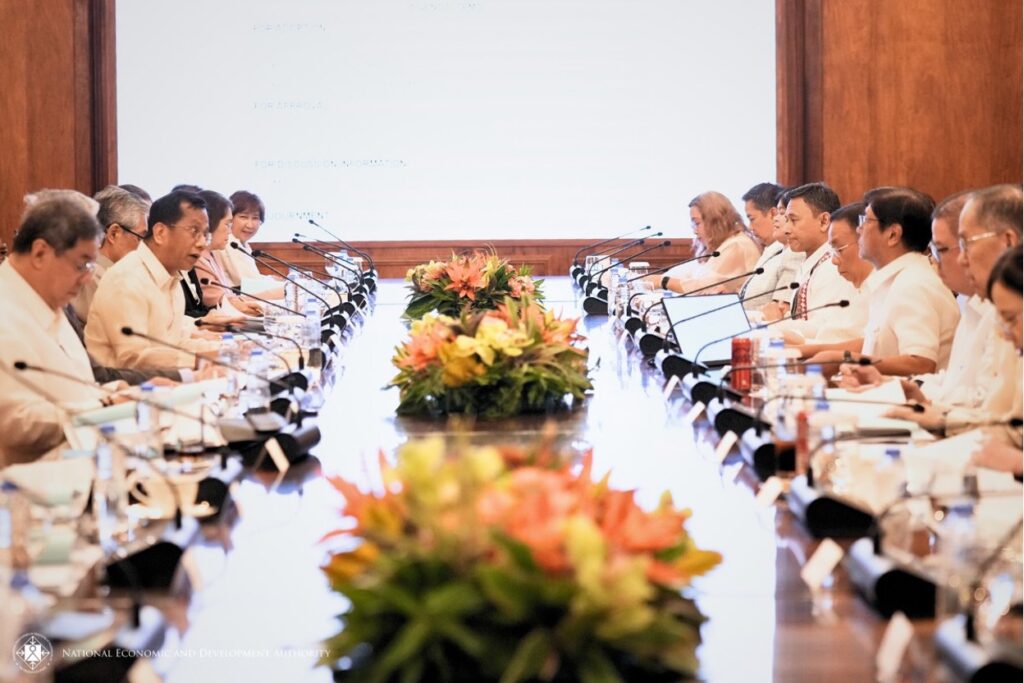|
Getting your Trinity Audio player ready...
|
The National Innovation Council (NIC) has approved the creation of a technical group to study the current landscape and future direction of artificial intelligence (AI) in the Philippines, according to the National Economic and Development Authority (NEDA). The think tank, comprising experts from industry, academia, and government, will play a central role in assessing AI adoption and its implications for national policy.

“If we want to harness the potential of AI, we urgently need a national approach and policy that will ensure alignment and collaboration between public and private sector efforts,” NEDA Secretary Arsenio M. Balisacan, who also serves as the NIC’s Vice Chairperson, said.
The AI think tank was approved during the 8th Council meeting on March 26 and will focus on assessing the country’s AI capabilities, identifying challenges, and formulating strategies for AI-driven economic transformation. The NIC has designated the Department of Science and Technology (DOST) as the lead agency to form and oversee the group.
Balisacan underscored the importance of preparing the Filipino workforce for the AI revolution.
“More importantly, we must ensure that the Filipino workforce is adequately prepared to upskill and transition efficiently to these AI developments,” he stated. “To achieve this, we need to understand precisely what we are dealing with and how AI developments can be contextualized within the Philippine setting.”
A 2023 study by Google (NASDAQ: GOOGL) and Access Partnership found that AI adoption and digital skills development could contribute PHP2.8 trillion ($48.9 billion) in annual economic value to the Philippines by 2030. The findings emphasize AI’s potential to boost productivity, enhance competitiveness, and drive economic growth.
DOST to spearhead AI research
With its designation as the lead agency for the AI think tank, the DOST will establish a technical working group responsible for conducting in-depth research on the country’s AI readiness. The group will primarily focus on studying AI’s evolving impact and how the Philippines can adapt to global technological advancements.
Balisacan stressed that understanding AI’s full scope is necessary for crafting policies that will drive economic progress.
“The establishment of the AI technical group is a step toward enhancing and developing the country’s innovation ecosystem,” he said. “As President Ferdinand R. Marcos Jr. emphasizes, nothing less than a whole-of-society and whole-of-government approach can ensure that we are utilizing all possibilities and resources in planning for and pursuing a more prosperous and resilient future that will benefit all Filipinos.”
New guidelines for 2025 Innovation Grants

Alongside the AI think tank’s approval, the NIC has also ratified new implementing guidelines for the 2025 Innovation Grants. These guidelines will outline eligibility criteria for various innovation programs and projects, supporting sectors such as agriculture, health, energy, education, defense, and public administration.
Balisacan highlighted the government’s commitment to fostering innovation, saying, “Much work still needs to be done, and the establishment of the AI technical group, along with the release of the new implementing guidelines for the 2025 Innovation Grants, marks a step forward in developing the country’s innovation ecosystem.”
Since 2022, the NIC has funded numerous initiatives through its Innovation Grants program, addressing local challenges and scaling up technological solutions. The upcoming guidelines will be released by NEDA in the second quarter of 2024, with the Call for Proposals for the 2025 cycle set to follow shortly thereafter.
The Philippines’ push for AI-driven growth
The government’s focus on AI and innovation aligns with its broader efforts to integrate emerging technologies into national development. Last year’s budget allocations, including PHP70 million ($1.2 million) allocated for the Technical Education and Skills Development Authority’s (TESDA) digital transformation and AI adoption, further reflect this commitment.
The AI think tank, combined with continued investment in workforce development and innovation grants, positions the Philippines to maximize AI’s economic potential.
“Ensuring that the Filipino workforce is ready and that we have a well-thought-out AI strategy is crucial for the country’s future,” Balisacan emphasized.
In order for artificial intelligence (AI) to work right within the law and thrive in the face of growing challenges, it needs to integrate an enterprise blockchain system that ensures data input quality and ownership—allowing it to keep data safe while also guaranteeing the immutability of data. Check out CoinGeek’s coverage on this emerging tech to learn more why Enterprise blockchain will be the backbone of AI.
Watch: Exposure to blockchain will help the Philippines a lot

 02-17-2026
02-17-2026 




